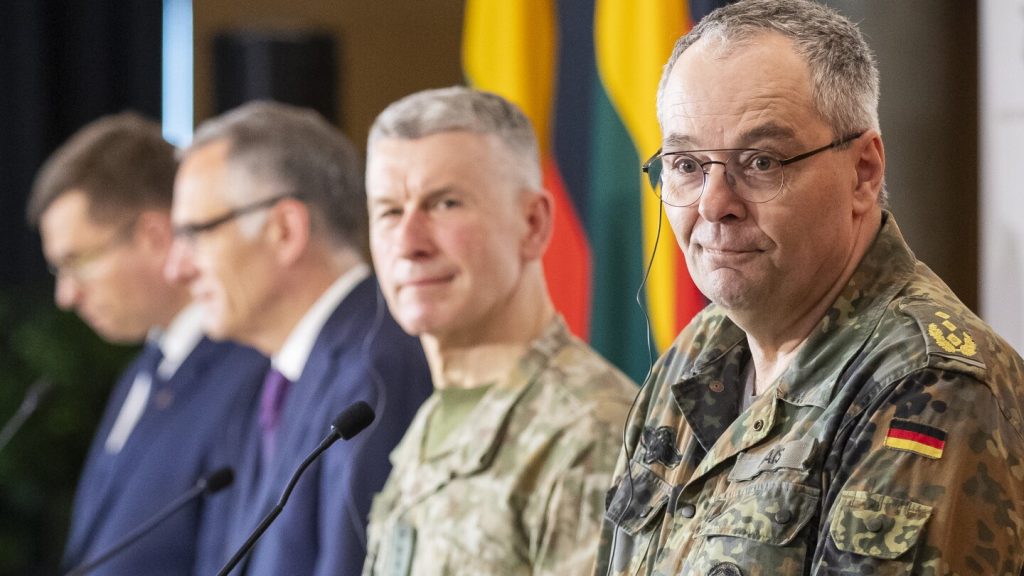Germany’s deployment of troops in Lithuania has been hailed as a historic event by Lithuanian leaders, marking the first time since World War II that German forces will be based outside the country on a long-term basis. The initial deployment of about two dozen soldiers is laying the groundwork for a further 150 to join them later this year, with plans to reach full strength of 5,000 by the end of 2027. German Defense Minister Boris Pistorius described it as an important day for the German army, while Lithuanian Defense Minister Laurynas Kasciunas emphasized the significance of creating a defense and deterrence architecture to protect NATO’s eastern flank.
The deployment of German troops in Lithuania is part of NATO’s collective defense strategy, with Article 5 at the heart of the alliance. This article states that an armed attack against one or more NATO members shall be considered an attack against all, emphasizing the importance of solidarity and cooperation among member states. Lithuania, which borders Russia’s Kaliningrad exclave to the west and Belarus to the east, is increasingly worried about the aggressive behavior of its neighbors, making the presence of German troops crucial for its security.
The agreement between Germany and Lithuania involves the permanent stationing of 4,800 soldiers and around 200 civilians with the German army in Lithuania. This marks the first standalone German deployment outside of the country on a permanent basis, as opposed to participating in multinational forces on rotation. The Bundeswehr, Germany’s army, has been involved in long-term operations abroad since the 1990s, but this deployment represents a significant commitment to enhancing deterrence and security in the region.
The Lithuanian Defense Ministry expects up to one-third of the German troops to bring their family members with them, further integrating the presence of German forces into the local community. This move is seen as a demonstration of exceptional leadership and commitment to NATO’s collective defense and unity. Lithuania’s Chief of Defense Valdemaras Rupsys emphasized the importance of equipping the brigade as needed from the outset to ensure effective deterrence of potential adversaries. The German brigade is expected to reach full operational capacity by 2027.
The deployment of German troops in Lithuania is part of a broader strategy to strengthen NATO’s eastern flank and enhance security in the region. With tensions rising with Russia and Belarus, NATO members are working together to ensure the defense and deterrence capabilities of the alliance are robust and effective. The presence of German forces in Lithuania is seen as a positive example for other countries on NATO’s eastern border, sending a clear message that aggression will not be tolerated.
Overall, the deployment of German troops in Lithuania marks a significant step in enhancing NATO’s collective defense capabilities and ensuring the security of its member states. The cooperation between Germany and Lithuania demonstrates a strong commitment to upholding the principles of the alliance and deterring potential threats from adversarial neighbors. As the German brigade reaches full operational capacity by 2027, it is expected to play a crucial role in maintaining stability and security in the Baltic region.


